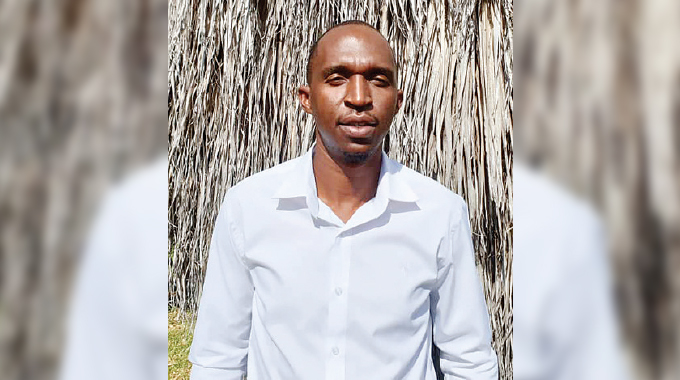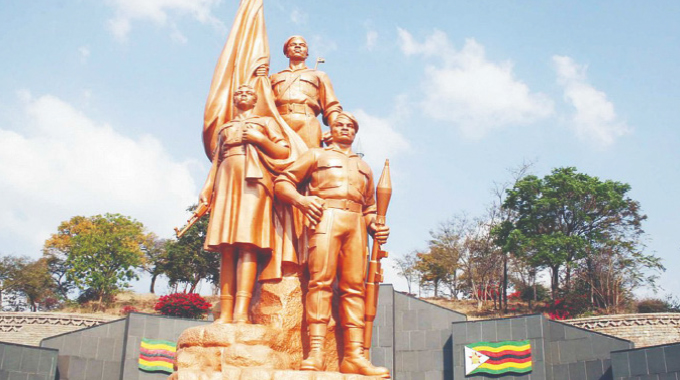Growing up too soon!…Challenges of child-headed families

Michelle Moyo, [email protected]
CHILD-HEADED households face immense challenges, including poverty, malnutrition and the struggle to meet basic needs. Financial constraints often force children to drop out of high school, as they must work to support their siblings. Studies in Zimbabwe reveal that children in such households frequently leave school to contribute to their family’s survival.
These young individuals bear the weight of adult responsibilities, experiencing trauma and stress at an early age. Unfortunately, research indicates that children in child-headed households are at a heightened risk of abuse and exploitation.
Mr Clement Ncube (22), who was part of a child-headed family in Bulawayo’s Entumbane suburb, expressed concern about the lack of recognition within the community. Despite their circumstances, child-headed families find themselves discriminated against when seeking assistance from organisations like the Basic Education Assistance Module (BEAM). The struggle for acknowledgment and support persists for these resilient families.
“I am an orphan and I take care of my four siblings, I started taking care of them when I was in Grade 7 in 2014 and studied up to Form 3 due to financial shortages. I go around doing piece jobs but the challenge is that people take me for granted. For instance, I have been working more than three jobs without being paid and even if I report to the community, they don’t take it seriously.
“Another challenge I am facing is that I have been a job hunter for years, but I haven’t been lucky and as a result my family goes to bed on empty stomachs. My siblings have dropped out of school and they don’t have proper clothes to wear,” said Mr Ncube.
According to Mr Alfred Ncube, chairperson of the Council of Social Workers, extended family members and the community have traditionally served as the primary social safety net for orphaned children and those without parental care. This support system becomes crucial in addressing various social challenges, including orphanhood and absent parents.
“Programmes like Isiphala Senkosi, were there to provide food security for vulnerable families in the community especially child-headed families. Extended families also played a key role to take over care of children who have lost parents.
“This was the ideal practice in the care of child headed families and the role was assumed by the extended family and in case the extended family system is not available then the community takes over.
“Unfortunately, this is no longer the practice with some child-headed families left alone with no parental care either by extended family or community. No surprise that some find themselves going to institutional care. The breakdown of community-based care systems has affected families headed by children and having a family classified as child-headed is a sign that extended family and community has failed to provide required support,” Mr Ncube highlighted.

Sheikh Isaac Ali
According to Sheikh Isaac Ali, in Islam, it is the obligation of the extended family and the community to actively and crucially support child-headed families. This support includes showing empathy, providing emotional support, offering guidance and extending financial assistance to children who have lost their parents due to death or abandonment.
“The community is expected to assume the role of caregivers who ensure that the children’s physical, emotional and spiritual needs are met. The religion of Islam emphasises that children like these are entitled to receive obligatory charity called Zakaat from the community leaders because every child deserves a memorable past and a promising future whether or not the parents are dead or alive.”
Sheikh Ali acknowledges that in certain communities, the community and extended family networks might fall short in providing adequate support or no support at all to these child-headed families. This situation often arises due to limited resources.
“Stigma also plays a major role to the disadvantage of these children especially if the children lost their parents through HIV especially if the community involved is not well acquainted with knowledge about HIV/Aids.
“Stigma associated with beliefs also affects these children in situations where a community that regards orphans or death of parents as a curse, the whole community turns a blind eye to the plight of these vulnerable children, leaving them with no one to support or associate with them.
“Neglect from inconsiderate relatives especially if the children’s parents did not leave behind wealth or material benefits then the children are forced to face the world’s challenges alone and in many instances they struggle to cope with the responsibilities of running a household, caring for siblings, and managing their own well-being and end up experiencing feelings of abandonment, loneliness and stress.

HIV and Aids
“They may also face challenges in accessing education, healthcare and basic necessities of life. Moreover, the lack of support from the community can lead to a sense of insecurity and vulnerability, affecting the children’s overall well-being and development,” said Sheikh Ali.
Access to healthcare can be severely limited, particularly for children in poor households, including those in child-headed families. The Unicef Zimbabwe Child Poverty Report underscores this challenge, underlining the restricted healthcare access faced by vulnerable children.
In addition to healthcare barriers, child-headed households encounter other difficulties. These include legal issues and stigmatisation, which can hinder their access to essential social support systems. Unfortunately, these challenges have long-term effects on the mental and physical well-being of the children involved, as well as their future prospects.
Addressing these critical issues necessitates comprehensive support from both the community and government. Education, healthcare, and social services must be accessible to ensure a brighter future for these resilient young individuals. -@Lo7246Lovelyn












Comments